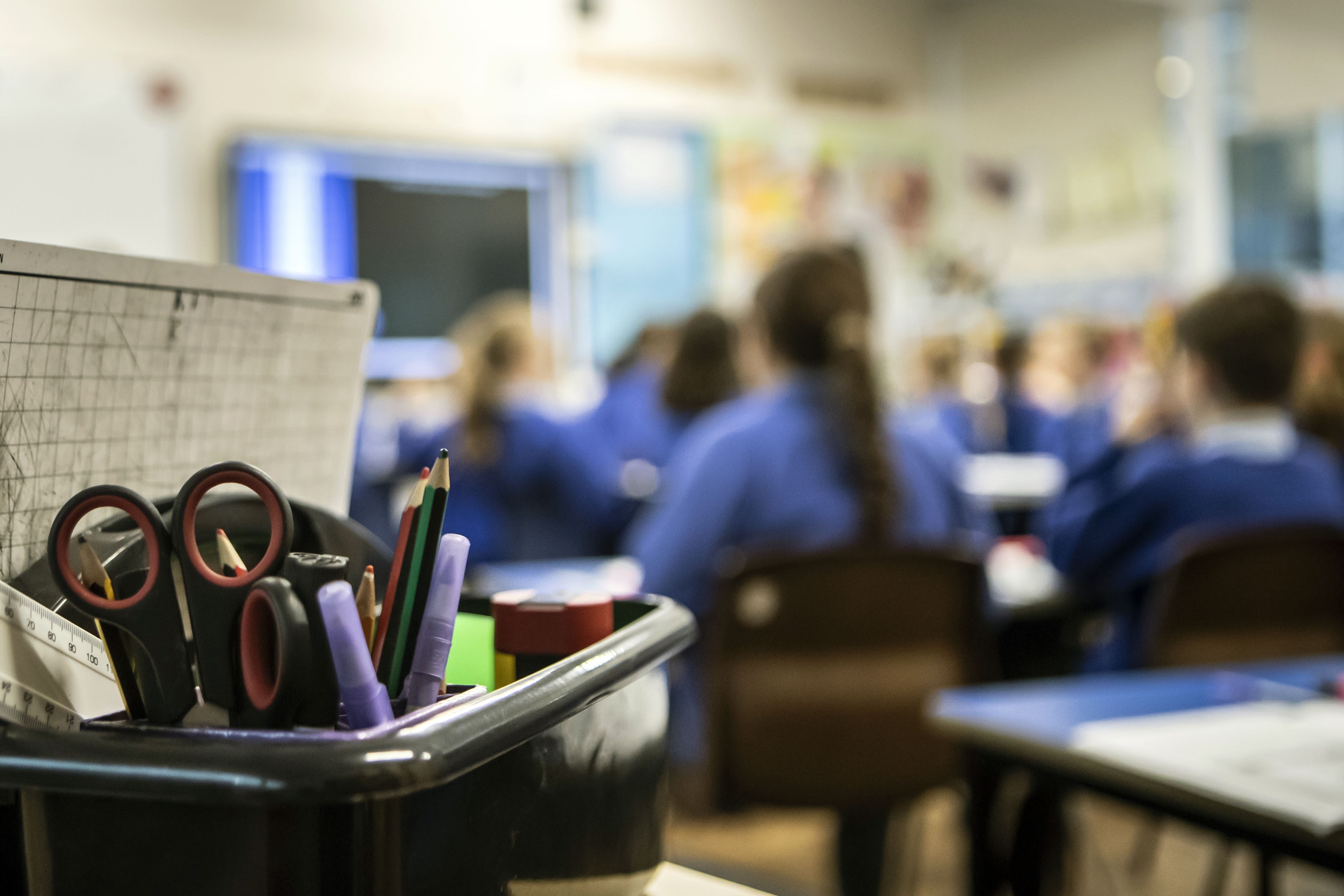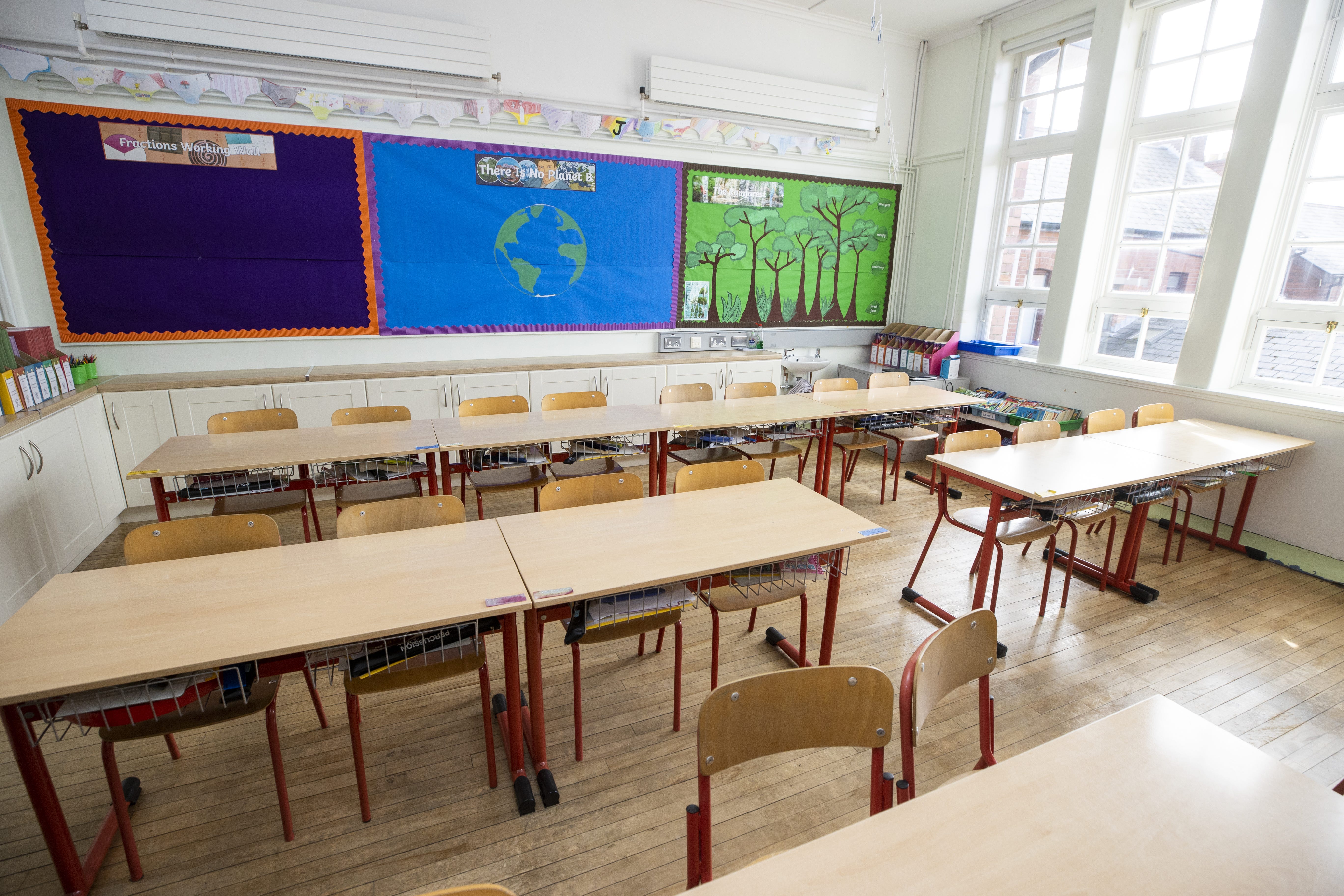Number of pupils off school around Christmas rises despite new rules
The Department for Education said other actions, such as a parenting order or prosecution, are being considered

Your support helps us to tell the story
From reproductive rights to climate change to Big Tech, The Independent is on the ground when the story is developing. Whether it's investigating the financials of Elon Musk's pro-Trump PAC or producing our latest documentary, 'The A Word', which shines a light on the American women fighting for reproductive rights, we know how important it is to parse out the facts from the messaging.
At such a critical moment in US history, we need reporters on the ground. Your donation allows us to keep sending journalists to speak to both sides of the story.
The Independent is trusted by Americans across the entire political spectrum. And unlike many other quality news outlets, we choose not to lock Americans out of our reporting and analysis with paywalls. We believe quality journalism should be available to everyone, paid for by those who can afford it.
Your support makes all the difference.The number of children off school without permission increased ahead of the Christmas holidays, new figures show.
Data from the Department for Education (DfE) shows the unauthorised absence rate across state schools in England was 3.4% in the week ending December 20 – which was the last week of term.
This was higher than at the start of the term – the week ending September 13 – when the rate was 1.9%, and higher than before the half-term – the week ending October 25 – when it was 2.4%, according to the DfE figures.
It comes as parents in England face higher fines if they take their children out of class without permission this academic year as part of a Government drive to boost school attendance since the Covid-19 pandemic.
New rules
School absence fines start at £60, rising to £120 if they are not paid within 21 days. But the DfE has said fines will start at £80, rising to £160.
Under the new measures – which have been announced as part of the Government’s efforts to try to cut down on the number of children who are regularly missing school – every state school in England will share their daily attendance registers with the DfE, councils and academy trusts.
All schools are required to consider a fine when a child has missed 10 or more sessions (five days) for unauthorised reasons.

The DfE has said other actions, such as a parenting order or prosecution, will be considered if a parent exceeds two fines per child within a three-year period, and those who are prosecuted could receive a fine of up to £2,500.
The latest data also shows the overall absence rate – authorised and unauthorised – was 9.5% in the week ending December 20, which was “the highest absence rate” of the autumn term in 2024.
The absence rate varied across the last week of term – with a low of 8.5% on Tuesday and a peak of 12.9% on Friday.
Most of the rise in absences towards the end of term was “driven by illness”, the DfE said.
Pepe Di’Iasio, general secretary of the Association of School and College Leaders, said: “There was clearly an increase in absence rates during the final week of the Christmas term. It is a time of year when there are lots of colds around and this may account for some of this increase.
“However, it is also clear that there was an increase in unauthorised absence which is particularly worrying and we would reiterate the importance of attending every day of education.
“Schools are moving heaven and earth to improve attendance rates but they do need more support from the Government in terms of investment in the wider infrastructure of family and child support services which are vital in dealing with some of the issues that affect school attendance.”
The figures are difficult to compare with the equivalent period the year before as there is only national attendance data available for the week ending December 15 in 2023, which was not the last week of term for many pupils.

But the DfE said the increase in absence between the October half-term and the end of the autumn term was “in line with patterns seen during 2023/24”.
Paul Whiteman, general secretary at school leaders’ union the NAHT, said it was “encouraging” that attendance figures across the autumn term appear to have moved “in the right direction” compared with a similar period in 2023.
He said: “However, there is still a long way to go, and schools are continuing to work incredibly hard to increase attendance, including by tackling unauthorised absence.
“Many of the causes of absence lie beyond the school gates, though, and have their roots in social challenges facing families, poverty, and issues like physical and mental health, which fines for parents do nothing to address.
“Measures announced in the new Children’s Wellbeing and Schools Bill, such as free breakfast clubs and a register of children not in school, will help – but we also need the Government to reinvest in crucial services which support families and schools and have faced huge cuts under previous administrations.”
A DfE spokesperson said: “Our mission is to break down barriers to opportunity so every child can achieve and thrive.
“Strong foundations of learning are grounded in attendance in the classroom as every day of school matters but we’ve reached crisis point.
“When children miss school unnecessarily whether it’s for parental disengagement, for minor illnesses or for holidays, all children suffer, as teachers’ attention is diverted to helping them catch back up.
“Our guidance takes a ‘support first’ approach and parents have a legal responsibility to ensure their child attends school.
“Where necessary, legal interventions, including penalty notices, are available to help change behaviour.”